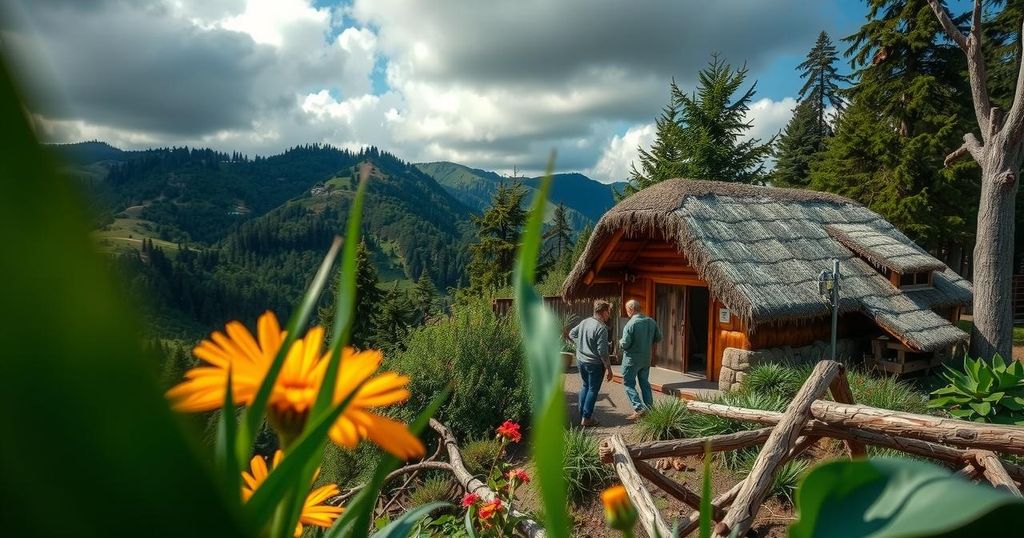Danielle Touma collaborates with the Karuk Tribe in California to address escalating wildfire risks posed by climate change. By integrating traditional ecological knowledge with modern climate modeling, her work aims to empower the tribe to better manage their environmental challenges. The initiative represents a model for similar partnerships between scientists and indigenous communities, fostering resilience against extreme climate impacts.
Danielle Touma, a research professor at the University of Texas, Austin, is actively engaged with the Karuk Tribe in Northern California to address climate challenges, particularly wildfire risk. Drawing from her experiences with drought in Lebanon and her extensive background in earth system sciences, Touma utilizes her research expertise to bridge modern scientific approaches with the tribe’s traditional knowledge of the land. Her involvement began while working on a hydrology model aimed at understanding wildfire risks, highlighting the urgent need for collaborative efforts in climate adaptation.
During her visit to Karuk territory, Touma recognized the significance of assisting the tribe in comprehending the impacts of climate change on their cultural practices and traditional food sources. The escalating frequency of extreme weather events poses a formidable challenge, disproportionately affecting tribal nations who have long served as stewards of their environments. The increase in large wildfires in California underscores the gravity of the situation, prompting specialized interventions tailored to indigenous needs.
Touma aims to develop a climate projection framework that integrates tribal observations with advanced climate modeling. This initiative seeks to empower the Karuk Tribe by quantifying risks associated with wildfires, droughts, and severe rainfall while enabling them to explore effective management strategies such as prescribed burning. Her innovative approach reflects a commitment to co-creating research methodologies that include both scientific and indigenous perspectives.
The collaboration is not merely a research project; it serves as a model for future partnerships between scientists and indigenous communities. Touma emphasizes the necessity of integrating traditional ecological knowledge with contemporary scientific research to effectively tackle the challenges posed by climate change. The work undertaken with the Karuk Tribe may pave the way for similar initiatives across other tribal nations, fostering resilience against the changing climate.
The article focuses on the collaboration between Danielle Touma, a research professor, and the Karuk Tribe in California, aiming to address the significant climate challenges they face, particularly regarding wildfire risks. The article outlines how climate change has disproportionately impacted indigenous communities, affecting their traditional practices and food sources. It emphasizes the importance of integrating modern scientific approaches with indigenous ecological knowledge to develop effective climate resilience strategies. With increased instances of extreme weather and large wildfires, this partnership represents a critical step towards sustainable management of tribal lands.
In conclusion, Danielle Touma’s work with the Karuk Tribe exemplifies the vital intersection of science and traditional ecological knowledge in addressing climate change. By developing a framework that incorporates both contemporary research and indigenous practices, the collaboration seeks to enhance the tribe’s capacity to manage environmental risks. This partnership not only empowers the Karuk people but also sets a precedent for future cooperations aimed at fostering resilience among indigenous communities in the face of escalating climate threats.
Original Source: thestoryexchange.org






